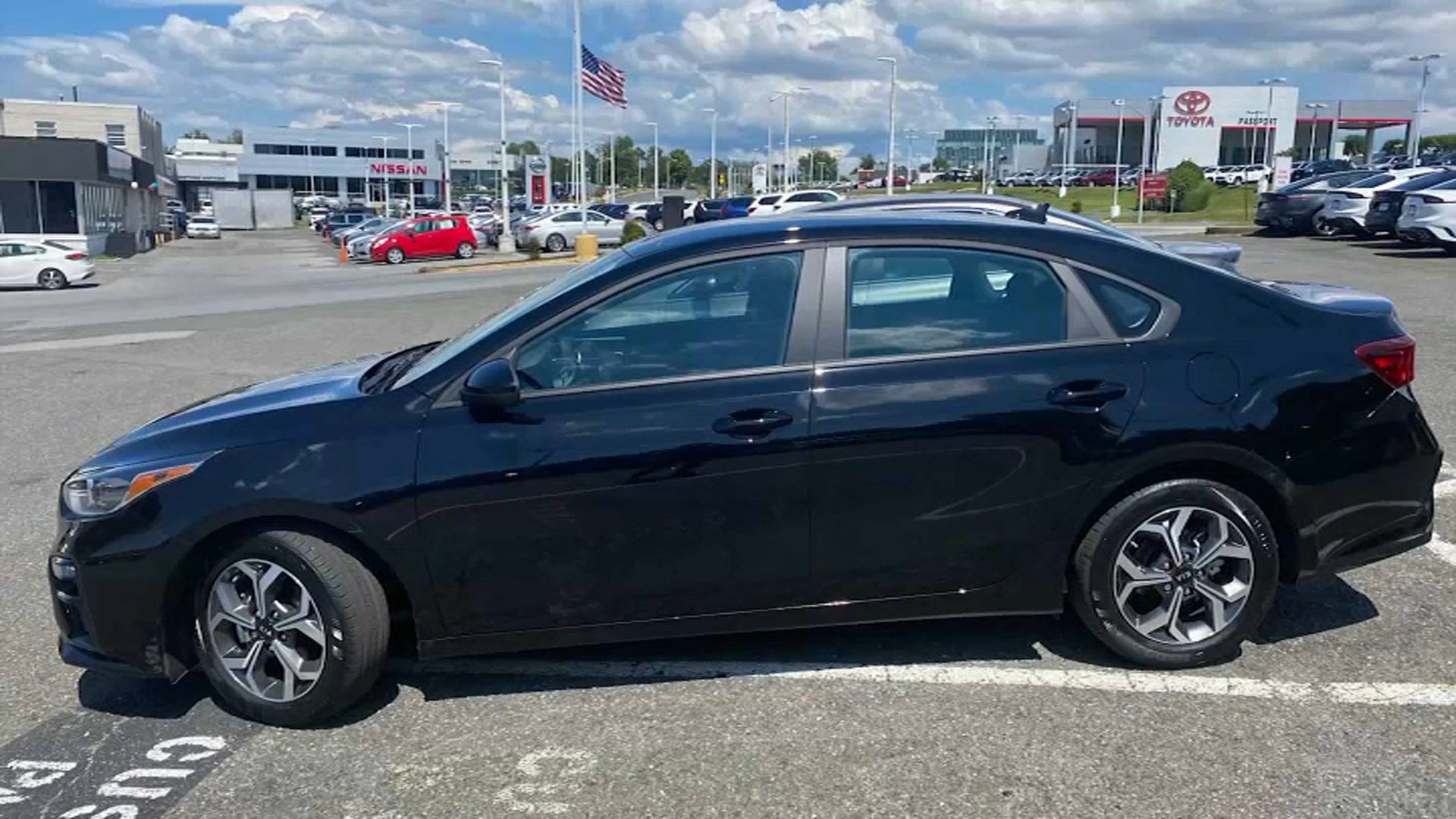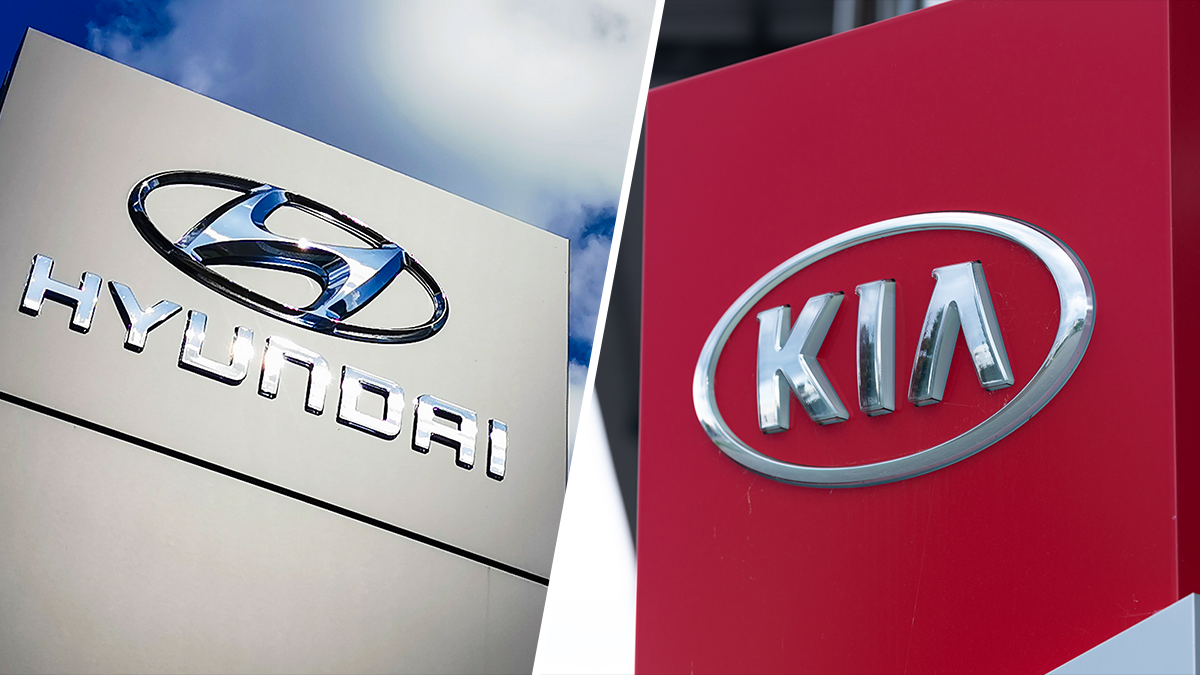Marie Guerrero Pincheria and her husband, Jorge, don’t have TikTok, but they certainly have heard of the viral “Kia Boyz” social media challenge linked to a rise in thefts of Kias and Hyundais nationwide.
That’s why the Maryland couple booked an appointment at the dealership earlier this year when Kia offered a free fix: an anti-theft software it said would prevent thieves from hotwiring their car with a USB cord.
But just three months after having the software installed in their 2020 Kia Sportage – and anti-theft stickers placed on its windows – their car was stolen from outside their home.
“I was like, Kia, did you just put these stickers on or did you really do something? Or is the software not what you think it is?” Marie Guerrero Pincheria said.
We're making it easier for you to find stories that matter with our new newsletter — The 4Front. Sign up here and get news that is important for you to your inbox.
She’s among a handful of Kia owners interviewed by the I-Team who question whether the software fix is enough to protect their cars. Meanwhile, the manufacturer says the software, which requires vehicles to be locked to function properly, is working as designed.
But Guerrero Pincheria, who acknowledges no glass was left behind when her car was stolen, said she did lock her vehicle, noting, “Even if had we not locked it and, as I said, I really remember locking it, how did you get the ignition hotwired?”
Antonette Cook, of Pennsylvania, showed the I-Team receipts for her Kia Sportage’s anti-theft upgrade in May. But she said that, just weeks later, it was nearly stolen after thieves broke in through a window and hooked up a USB cord.
Cook said a neighbor who saw the break-in called the cops. By the time she arrived, she said the cops were on scene and her car was running – an indication, she said, that someone was able to hot-wire it. She said she doesn’t know if the would-be crooks or the cops turned on her car, and the police report didn’t address the issue either way.
“If it was working the way it was supposed to … I know they probably still would’ve broken my window to get into my car, but they never would've been able to cut my car on,” Cook said.
In Louisiana, Taylor Rose's Kia Optima was stolen just hours after getting the software upgrade in April. Asked whether it’s possible he left the vehicle unlocked, Rose, 19, said no and showed the I-Team photos of his car’s busted out window.
“If my car was unlocked, then what was the intention of the window being broken into it?” he said.
Rose’s father, who works in law enforcement, headed back to the dealership. There, he says an employee told him the only way someone could start his son’s 2020 Optima after receiving the software upgrade is with a key.
The Roses, however, had both copies of the key.
“I said, ‘Well, it was stolen without a key,’” Scott Rose said. “And everybody in the room was quiet.”
Taylor Rose’s car was found just days later, but the Roses said the interior was largely destroyed and drugs were found inside – alongside a still intact USB cord. The Roses said they’re still waiting for answers on what went wrong after getting the upgrade.
“I would love to find out if the program was actually put in or the program failed,” Scott Rose said.
Carmakers' response
The I-Team called the dealerships for Guerrero Pincheria, Cook and the Roses, and each confirmed they installed the software.
In a statement a Kia spokesman said the company remains "confident the software upgrade we developed for eligible Kia models works as intended" and is "not aware of any cases – including these specific instances – where the software has not worked as designed."
A spokesperson for Hyundai, which has an ownership stake in Kia, said while the manufacturer has seen compatibility problems with some cars that have remote start capabilities, "Hyundai is not aware of any confirmed failures of the software and can report the software is in fact working as designed."
According to Hyundai, the upgrade works on certain vehicles “equipped with standard ‘turn-key-to-start’ ignitions so they cannot be started without their keys." But, Hyundai continued, “Customers will need to lock their doors with their key or key fob button in order to set the factory alarm and activate the software's ‘ignition kill’ feature."
A spokesman for Kia said its software works similarly.
The carmakers have been under fire for several months as thefts of certain older models of their vehicles have soared across the country.
D.C. police, for instance, report more than 1,460 Hyundais and 800 Kias were stolen in the District so far this year – a more than 300% increase compared to 2022 theft reports.
Kia and Hyundai announced the free software upgrade in February to help combat the social-media fueled theft craze, but so far only about 15 percent of all eligible owners have had the update installed, according to the manufacturers.
In May, the carmakers agreed to pay roughly $200 million in a class action lawsuit to owners of certain Hyundai and Kia models that lack push-button ignitions and immobilizing anti-theft devices. The carmakers have also provided steering wheel locks to eligible customers.
Call for recall
Michael Brooks, with the Center for Auto Safety, says these solutions aren’t enough. He’s among those calling for the feds to take action.
In April, 18 state attorneys general asked the National Highway Traffic Safety Administration to recall millions of Kias and Hyundais over the theft problem, which they called a "serious safety issue" that's led to "deaths" and "property damage."
“We know that people have died because of this,” Brooks said, echoing the state AGs letter. “When you call it a safety recall, you're going to get a better response than what's going on right now, which is a customer satisfaction campaign.”
So far, NHTSA has declined to take action.
In response to the I-Team’s request, NHTSA forwarded a letter it sent back to the state AGs stating it hasn't determined the issue constitutes either a “safety defect or noncompliance requiring a recall." It added: the “safety risk arises from unsafe use of a motor vehicle by an unauthorized person.”
"Basically, they say there is a criminal act that has taken place that kind of lets Hyundai and Kia off the hook. We don't agree with that,” Brooks said.
Marie Guerrero Pincheria still hasn’t gotten her Kia back, nor has anyone been arrested in the crime, but she did receive two speeding tickets in the mail she blames on the thief.
She’s now on the hunt for a new car, since hers is still missing.
“Shopping for a new car has been a nightmare, and will cost us much, much more,” she told the I-Team. “We are in our 80s and living on pensions.”
She said her insurance company is among those now declining to insure certain models of Kias, but she and her husband have already decided to buy from a different maker.
Reported by Susan Hogan, produced by Katie Leslie, and shot and edited by Steve Jones and Jeff Piper.



